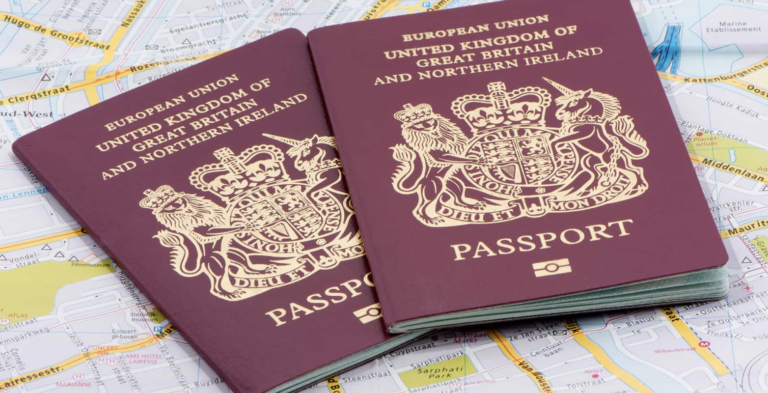Debt recovery

The financial situation often changes, so individuals and entrepreneurs may have debts. Sterling Law clients can count on the assistance of a lawyer in debt collection and the collection of receivables. It is the task of a team of experienced lawyers to settle all issues. Employees with many years of experience find a solution in any situation.
The professionals at Sterling Law have a rich experience in the debt recovery services field. We are able to develop the best strategies for recovering debt and provide with all the assistance required throughout the entire process. The initial analysis of the case is free of charge. In case our team considers the debt to be unrecoverable, we will share that information right away.
In the list below, there are all the ways of collecting the debt:
- Threaten to file a court case on the matter or actually file it.
- Threaten to initiate insolvency proceedings or actually initiate them.
- Negotiate with the subject without formal proceedings.
- Do nothing and cancel the debt.
The Four Stages of Court Proceedings
1. Pre-Action
For initiating a court case, a very specific procedure has to be followed. The first step is the one made before even contacting the authorities, as it implies formally notifying the subject about the upcoming debt claims.
It is done by mailing them the so-called “Letter Before Claim”. Typically, it is recommended to include all the key information about the debt in that letter. When sending an official letter to the debtor, the following information must be indicated in the document:
- full name and address;
- actions to be performed by the debtor in connection with the resulting debt;
- payment amount and calculation—the cost of the work or services performed;
- specify the deadline for the response. As a rule, 14 days are given;
- inform the debtor that, in the event of nonpayment and no response to the letter, the next step is to appeal to the court. Appeal is the final stage. In the letter before claim other things should be added – as a reference to an agreement, whether it was oral or written, what has been breached and etc.
The subject is also eligible to dispute the debt. In case that happens, it is recommended to respond to all their arguments to further present it in Court. If this step does not help to resolve the issue without the help of the legal entities, it may proceed to Court, no matter whether the debtor replied to the Letter Before Claim or not.
2. Issuing a Claim
If the previous action did not work out, the only remaining option to retrieve the funds is to issue a claim. To do so, the first step would be to fill out a Claim Form, which covers the most important details about the case. There is also a Particulars of Claim document, which has to be filled out with all the additional details related to the case.
These two documents should contain the information related to the following matters:
- the initial cause of the debt;
- the sum of funds in question, supported by all the related documents;
- specification related to contractual or statutory interest;
- the sum of legal fees claimed on top of the initial funds and interest.
These two documents should be filled out carefully, and sometimes, it is worth getting the help of a debt recovery solicitor to do it properly. The next step involves filing these documents to Court and paying the related fee to formally issue the claim.
The vast majority of claims in this group are resolved in the CCMCC, which is located in Salford. Once the filing is reviewed, the entity will reply with a Notice of Issue.
Another option is to do the filing online. A special service simplifies the task. You can simply and quickly file a claim and not be afraid for the safety of your data thanks to Money Claim Online. It is also convenient to track changes in the status of a claim or a court decision. A debt recovery lawyer will take care of all the formalities.
You can solve such issues thanks to the MCOL service if:
- the sum is not more than £100,000;
- the number of debtors (individuals or companies) does not exceed 2.
You can file a claim and specify debt claims anywhere in the UK if the applicant is over 18 years old. The main condition is that the debtor must reside in England or Wales. The client needs to take into account that it will be necessary to pay court fees; the amount is calculated from the amount of the claim.
3. After the claim has been issued
With the majority of claims of this kind, the CCMCC will inform the subject about the claim and provide them with two weeks to make a decision regarding the proceedings. They will be able to either agree to repay the sum owed or to proceed the case to court and dispute the claim. In the latter case, they will have twenty-eight days to file the defensive documents.
In case the debtor does not file the required documents, there opens a possibility to apply to the Court for Judgment against them.
If the debtor does defend the claim, the case will be allocated to a nearby county court. It will lead the proceedings further on, including such steps as meditation, witness statement exchanges, the hearings themselves.
4. After Judgment
Sometimes, winning in Court is not enough to retrieve the funds. In some situations, the subjects may refuse to pay the sum, even after a decision is made by the court. The good news is that there are multiple options that might help. The list includes:
- Contacting the Court, which will issue a Warrant and perform all the debt collection procedures.
- Issuing a Charging Order. Such an order implies that the next time the subject sells their property, the authorities will charge the debt from the sum of the deal and proceed it to you.
- Issuing a Third Party Debt Order. This document is also issued by the Court. It implies contacting third parties like banks and ordering them to withdraw the funds from the subject’s accounts and transfer them to you.
- Attachment of Earnings Order. The last option the Court may help you out implies contacting the employer of the subject and instructing them to charge the sum of the debt from their earnings on a monthly basis until the full sum is paid out.
Insolvency Proceedings
With insolvency proceedings, the situation is rather ambiguous. First of all, it is important to understand that they are not used for recovering debt. Nevertheless, notifying the subject about your intention to initiate such proceedings is one of the ways to motivate them to repay the sum owed. In addition to that, such a notification will motivate them to share the reasons for non-payment or any disputes to the sum owed.
The recommendation of our debt solicitors team is to use a threat of initiating insolvency proceedings cautiously. Even though it might turn out to be an effective tool, using it in case it is a bluff may only make things worse. Moreover, it is not applied to every debt collection case.
Last but not least, the insolvency of the debtor is not the absolute best outcome for the creditor. It requires formal proceedings, and as a result, the amount received by the creditor is almost always smaller than the sum that was initially owed. The procedure is also more difficult than a regular claim, so the services of lawyers for collection debts will be surely required. Generally, Insolvency Proceedings are worth it for cases with huge sums in question, as otherwise, the outcome may be insufficient.
Resolution
As we have already mentioned in the first section, there is also an option to resolve the issue informally. This option does not involve any legal fees, and the time frame in which it is performed is a lot smaller. Moreover, this is the best way not to ruin the relationships with the debtor, allowing for normal interactions with them in the future.
Interacting with the subject informally may lead to negotiating the dispute without having to hire a debt recovery lawyer. An additional option here would be to attract the services of a mediator third party. They might make reasonable suggestions that would help you and the subject to resolve the issue informally. It is worth mentioning that the mediator services are only used for advice, whereas the final decision is made by you and the subject. In case attracting a mediator does not help, there is still an option to open a claim.
No Action
The very last option available to the creditor implies writing off the debt. In some cases it might be the most cost-effective decision, especially, in case the sum owed is relatively small. To understand whether it will be cost-effective, the creditor should consider if it will be possible to have the debt repaid at all. For instance, in case there is a certain understanding that the subject is not financially capable of repaying the funds.
Of course, the estimated cost of the proceedings should be kept in mind too, including both the legal fees and the time the creditor is required to invest in order to resolve the matter. Lastly, the creditor should consider the effect the proceedings might cause on their business relationships with the subject.
How can we help?
Recovering debt is a complicated process with many nuances. The help of lawyers can greatly simplify and speed up debt collection. It also provides confidence in the fulfillment of all formalities and reduces stress in connection with the proceedings. With the help of a law firm, it is possible to achieve the intended goals faster.
Our London debt collection services are available for all creditors. The professionals at Sterling Law will work with you to develop the best course of action for your case. We will surely help you with the best approach to your individual case and provide our help on all stages of the process.
If you need advice on debt collection, contact the experienced lawyers at Sterling Law directly. Learn more about the fees for debt recovery services from our experts here.
Frequently Asked Questions
Can I recover my debts without involving a debt recovery lawyers?
Yes, you can recover your debts without involving a debt solicitors. You can negotiate directly with the debtor or take legal action through the courts. However, contacting debt collection lawyers can be a more effective and efficient way to recover your debts.
What are the legal actions that can be taken for debt recovery?
Legal actions that can be taken for debt recovery include sending a letter before claim, issuing a county court claim, obtaining a county court judgment, and enforcing a judgment through various means such as bailiffs or a charging order.
What are the advantages of contacting debt recovery lawyers?
The benefits of using debt collection solicitors include having a team of experts who specialise in debt recovery, saving time and resources, and increasing the chances of your debts being successfully recovered.
What is the average time taken for debt recovery?
The average time taken for debt recovery in the UK can vary depending on several factors, such as the complexity of the case, the debtor’s cooperation, and the legal procedures involved. It is best to seek professional advice from a debt solicitor for a more accurate estimate of the recovery time.























